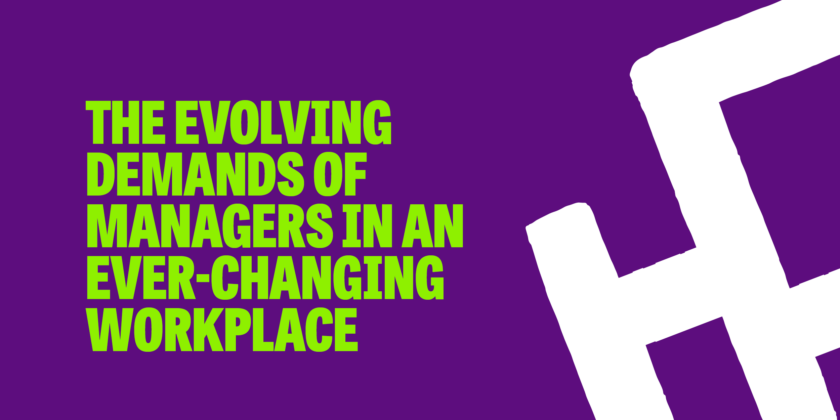As workplaces continue to transform, driven by factors like remote/hybrid work, multigenerational teams, and globalisation, the role of a manager is undergoing a profound shift. Managers are now expected to navigate an increasingly complex landscape, requiring a diverse and adaptive skillset.
We recently hosted an expert panel webinar on this very topic, featuring CPOs and senior HR leaders from institutions such as the British Library, Liverpool FC, IOPP, and People Puzzles, and we’ve included our top findings and discussion points below!
If you’d like to watch the panel discussion in full, simply click the link at the end of the article to access it!
Managing Across Generations
Today’s workforces are more age-diverse than ever, with up to five generations working side-by-side. Managers must develop cultural competency to effectively communicate and collaborate with employees of varying ages, work styles, and technological proficiencies. According to a recent study, 80% of HR leaders cite “managing a multigenerational workforce” as one of their top challenges.
Navigating Hybrid and Remote Work
The mass shift to remote and hybrid work models has upended traditional management approaches. Managers must now find ways to maintain productivity, foster team cohesion, and support employee wellbeing in distributed environments. A 2022 Gartner survey found that 55% of HR leaders cite “supporting remote/hybrid work” as a top priority.
Cultivating Inclusive Company Culture
With employees located across different regions and time zones, managers play a crucial role in ensuring a cohesive, inclusive company culture. They must champion diversity, equity, and belonging initiatives, while also addressing cultural nuances that transcend geographic boundaries. Research shows that 78% of employees consider an inclusive culture a key factor when choosing an employer.
Expanded Scope of Responsibilities
Beyond people management, managers are now expected to act as strategic business partners, data analysts, and change agents. This expanded scope requires them to continuously expand their skillsets and knowledge. A recent McKinsey study found that 87% of executives cite “developing leaders” as a top priority.
Greater Accountability and Empathy
With the growing emphasis on employee experience, managers are being held more accountable for the engagement, productivity, and wellbeing of their teams. This heightened level of accountability calls for a high degree of emotional intelligence and empathetic leadership. LinkedIn data shows that 59% of professionals consider “empathetic management” an important quality in leaders.
Conclusion
As the workplace continues to evolve, the role of the manager is becoming increasingly multifaceted and demanding. To succeed in this new environment, managers must be willing to cultivate cross-cultural fluency, adapt to hybrid/remote work models, champion inclusive cultures, expand their skillsets, and demonstrate empathetic leadership – all while maintaining accountability for team performance.
Organisations that invest in developing such well-rounded managers will be better positioned to thrive in the years to come.
Want to watch the full panel discussion? Head here to view the recording.
If you would like to chat about how we can support you and your teams not just now, but for years to come, you can view our full suite of management and leadership resources here.
